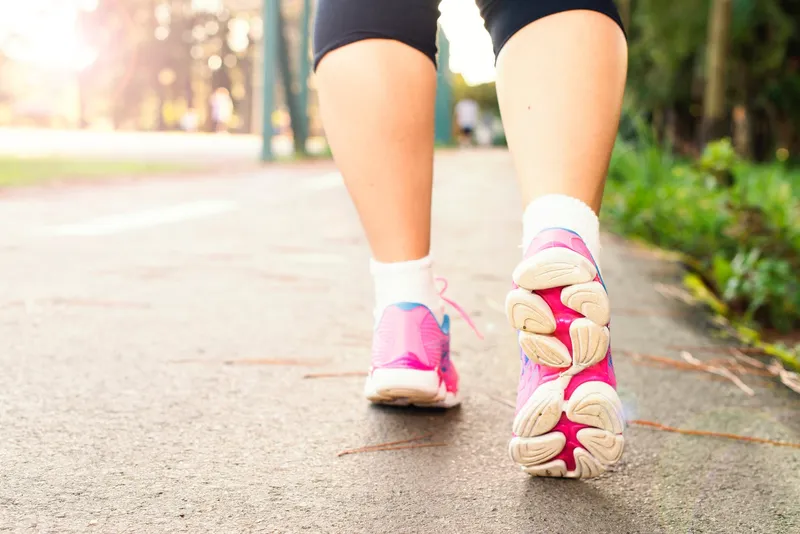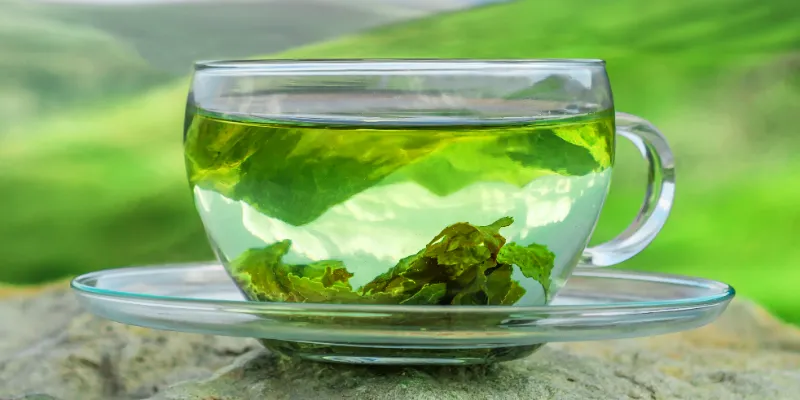Here’s how to maintain a healthy lifestyle for people who work a 9 to 5 job
Some tips for office-goers to keep up their energy levels throughout the day and maintain optimal health.
Working professionals often fail to implement a healthy diet plan due to their busy work schedules, which might lead to poor energy levels, irritability, fatigue, and restlessness. Skipping meals, eating unhealthy snacks during breaks, and an overall poor diet can prove to be very harmful in the long run, resulting in low metabolism, stress, and increased risk of chronic diseases such as diabetes, heart diseases, hypertension, etc.

To stay fit and active, manage weight, and boost productivity at the workplace, it is important to follow a healthy diet regimen and plan meals at regular intervals.
Here are some of the tips for office goers to keep up energy levels throughout the day and maintain optimal health.

Start your day with a morning walk
Besides choosing to sleep for a few extra minutes, lace up your shoes and start the morning walk at 7 AM and continue for at least 30-45 minutes. Walking can leave you feeling rejuvenated and refreshed and helps in reducing fatigue. Engaging in physical activity can also help to lower blood pressure, boost circulation, promote heart health, and reduce the risk for diabetes.

Do not skip your breakfast
Breakfast is the most important meal of the day so make sure you fuel yourself with a hearty breakfast that might include sandwiches, poha, upma, besan stuffed chilla, moong dal chilla, paneer chilla, sautéed vegetable idli, etc.
Consuming a healthy breakfast before you leave for work can help to boost energy levels and increase concentration.

Switch to healthy snacks
Some people rely on processed foods or sugary items to curb their hunger pangs in between meals. Unhealthy snacks with high sugar, trans and saturated fats have poor nutritional value that can give you an energy rush for a while, but ultimately make you feel sluggish or bloated.
Therefore, make sure to keep some fruits like apple, orange, pear, guava, or pomegranate handy, or just grab your favorite nuts. Replacing unhealthy snacks with fruits can not only save you calories but also a lot of money.

Choose healthy filling foods for lunch
Consume a wholesome and nutritious diet in lunch as it sets the energy bar for the rest of your day. Skipping lunch can impact your metabolism, make you feel sleepy, and lead to cravings.
Try to take a simple lunch like roti-sabzi, pulao, veg/non-veg biryani, chicken tikka, dal-rice, rajma-rice, kadhi-rice, chole-rice, subway, vegetable pasta, 6-7 momos with only Schezwan dip, missi roti, roti-sabzi with curd/salad/chutney.
If you are planning to shed weight, then you can include low-calorie and healthy alternatives such as brown rice, quinoa, unflavored yogurt, etc.

Keep evening hunger pangs at bay
Instead of reaching out for fried or sugary snacks, opt for healthy and light options to keep the weight in check.
Take your evening tea or coffee with two pieces of biscuits/rusk, or one cup makhana, diet namkeen, or roasted chana. If you crave sweets, try a nut-based snack bar, cookies, or at least 75 percent dark chocolate.

Eat a light meal in dinner
Make sure to eat a light dinner before 7:30 PM so that the body gets enough time to digest the food before you sleep. Having dinner at the right time helps to reduce unnecessary weight gain and supports a fulfilling sleep.
For dinner, you can include a bowl of salad with green leafy vegetables, plain besan chilla, moong dal chilla, sprouts chaat, a bowl of soup, a glass of fruit smoothie, omelette, boiled egg salad, multigrain roti, grilled chicken, or fish.
Before sleeping, take a cup of warm water or green tea to detoxify the body and flush out toxins.
Some instructions to follow during the day:
Keep your body hydrated
Have at least three liters of water during the day to maintain the balance of fluids in the body. Proper hydration helps to maintain important bodily functions, flush bacteria from the bladder, normalise blood pressure, and regulate body temperature.
Even your brain needs hydration to impair energy levels and enhance productivity at the workplace. Seating for prolonged hours can also lead to digestive issues such as constipation, bloating, cramps, and infrequent bowel movements. But drinking water reduces gastrointestinal problems, and reduces hunger pangs, thus aids weight loss.

Take jeera water/green tea after lunch and dinner
Cumin water (Jeera water) is a big hit among health-conscious people due to its immense nutritional benefits. Jeera water is also known as ‘grandmother hack’ to aid the digestion process and keep constipation at bay. Regular consumption of jeera water helps to shape one’s fat profile and reduces bad cholesterol.
Green tea is loaded with antioxidants and natural plant-based compounds such as tannins and flavonoids, which can help to burn fat, prevent bad breath, and protect heart health. Drinking green tea after the meal can act as a catalyst to accelerate the production as well as stimulation of digestive juices. Green tea also helps in better absorption of dietary nutrients.
Eat green leafy vegetables
Include healthy vegetable options such as cabbage, cauliflower, mushrooms, carrot, peas, brinjal, methi, palak, saag, beans, and pumpkin in the diet. Vegetables are a source of essential nutrients and are naturally low in fat and calories thus helps to maintain weight and healthy blood pressure.
Drink at least one liter of detox water a day
Detox water facilitates health and well-being by eliminating toxins from the body. Due to its alkaline properties, detox water helps to promote a more alkaline environment in the body and maintains the pH of the blood. For making detox water, you need to select the right ingredients.
Recipe:
- Soak ½ tsp chia seeds in one cup of water in the morning around 9:00-10:00 AM.
- Transfer the mixture to a bottle with one-liter water after 4-5 hours of soaking.
- Add ½ tsp lemon juice to the mixture.
- Note - Do not strain the seeds
Things to avoid
- Do not eat citrus fruits like oranges, kiwi, mosambi, lemon, or curd after 5 PM as they are highly acidic in nature, and consuming them at night can generate burning or heavy feeling, and lead to digestive issues. Other alternatives for citrus fruits can be guava, apple, pear, pomegranate, etc.
- Do not eat dinner after 7:00 PM as late-night meals can keep the body on ‘high-alert’ and give it no time to burn calories. Thus, eating at night can lead to weight gain and increase the risk of cardiovascular diseases. If you cannot eat your last meal before 7 PM, try to maintain at least 1.5 hours of gap between your dinner and sleep time.
- Do not skip meals and stick to a particular meal pattern.
Edited by Megha Reddy









